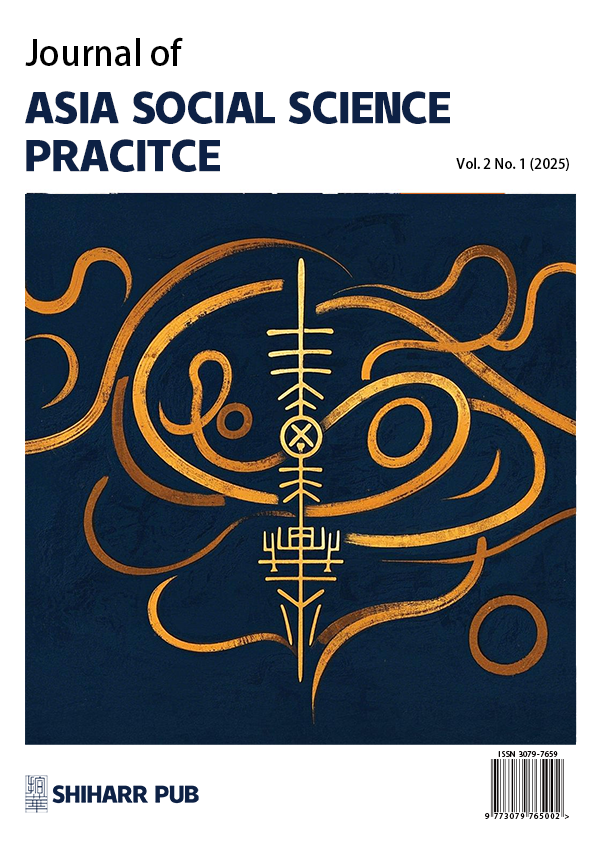Trauma and Postcolonial Ecofeminism: J.M.Coetzee’s Age of Iron
DOI:
https://doi.org/10.71411/jassp.2025.11Keywords:
Trauma, Postcolonial Ecofeminism, Age of Iron, Witnessing, Moral Conflict, IdentityAbstract
This paper examines the representation of trauma in J. M. Coetzee’s Age of Iron through a postcolonial ecofeminist lens, highlighting the intersections of bodily suffering, colonial violence, and environmental degradation. It argues that trauma in the novel manifests as both physical deterioration and moral conflict, reflecting the enduring scars of apartheid and colonial oppression. Mrs. Curren’s cancer-ridden body parallels the deterioration of the land, illustrating the entanglement of human suffering and ecological devastation. Through an analysis of trauma witnessing, ethical dilemmas, and the loss of identity, this study reveals how Coetzee intertwines individual and collective trauma within a postcolonial ecofeminist framework. By foregrounding the ecological dimensions of trauma, this paper expands existing postcolonial and feminist critiques, highlighting the underexplored intersections between bodily affliction and environmental violence. It further explores the rupture caused by ecological destruction and colonial dispossession, ultimately questioning whether healing and regeneration are possible within Coetzee’s postcolonial ecofeminist vision. This study contributes to trauma studies, postcolonial criticism, and ecofeminism by elucidating Coetzee’s critique of colonial legacies and the interwoven nature of trauma and ecological crisis.
References
Ackerman, D. (1997). Earth-healing in South Africa: Challenges to the church. Ecotheology: Journal of Religion, Nature & the Environment, 5(2).
Ackermann, D. M. (2003). After the locusts: Letters from a landscape of faith. William B. Eerdmans Publishing.
Albrecht, G. (2012). Psychoterratic conditions in a scientific and technological world. In P. H. Kahn & P. H. Hasbach (Eds.), Ecopsychology: Science, totems, and the technological species (pp. 241–264). MIT Press.
Arendt, H. (2006). Eichmann in Jerusalem: A report on the banality of evil. Penguin.
Attridge, D. (2021). J. M. Coetzee and the ethics of reading: Literature in the event. University of Chicago Press.
Belgacem, O. (2018). The body, desire, and storytelling in novels by J. M. Coetzee. Routledge.
Brennan, T. (2013). Exhausting modernity: Grounds for a new economy. Routledge.
Caruth, C. (1996). Unclaimed experience: Trauma, narrative, and history. Johns Hopkins University Press.
Clayton, S., & Karazsia, B. (2020). Development and validation of a measure of climate change anxiety. Journal of Environmental Psychology.
Coetzee, J. M. (1990). Age of iron. Penguin.
Coetzee, J. M. (1992). Doubling the point: Essays and interviews. Harvard University Press.
Coetzee, J. M. (2016). The schooldays of Jesus. Text Publishing.
Craps, S. (2013). Postcolonial witnessing: Trauma out of bounds. Palgrave Macmillan.
Cunsolo, A., & Ellis, N. R. (2018). Ecological grief as a mental health response to climate change-related loss. Nature Climate Change, 8(4), 275–281.
Dong, L. (2018). Home consciousness in the works of J. M. Coetzee. University of York.
Erikson, E. (2005). Eight ages of man. In Childhood: Critical concepts in sociology (Vol. 1, pp. 313–325). Routledge.
Erikson, K. T. (2012). Everything in its path. Simon and Schuster.
Eze, C. (2011). Ambits of moral judgement: Of pain, empathy and redemption in J. M. Coetzee’s Age of Iron. Journal of Literary Studies, 27(4), 17–35.
Felman, S., & Laub, D. (1992). Testimony: Crises of witnessing in literature, psychoanalysis, and history. Taylor & Francis.
Foucault, M. (1975). Discipline and punish. Gallimard.
Helaly, M. F. (2023). The metaphorical aspect in J. M. Coetzee‘s Age of Iron (1990).
Herman, J. L. (2015). Trauma and recovery: The aftermath of violence—From domestic abuse to political terror. Hachette UK.
Ho, J. M. C., Chan, A. S. W., Luk, C. Y., & Tang, P. M. K. (2021). Book review: The body keeps the score: Brain, mind, and body in the healing of trauma.
Jęczmińska, K. (2022). Spiritual and material dimensions of home in J. M. Coetzee’s Age of Iron. Crossroads. A Journal of English Studies, 1(36), 53–67.
LaCapra, D. (2001). Writing history, writing trauma. Johns Hopkins University Press.
LaCapra, D. (2002). Writing history, writing trauma. Holocaust and Genocide Studies, 31(2), 301–306.
Limes-Taylor Henderson, K., & Esposito, J. (2019). Using others in the nicest way possible: On colonial and academic practice(s), and an ethic of humility. Qualitative Inquiry, 25(9–10), 876–889.
Lin, L. (2001). J. M. Coetzee and the postcolonial rhetoric of simultaneity. International Fiction Review, 28(1/2), 42–53.
Luckhurst, R. (2013). The trauma question. Routledge.
Mies, M. (1986). Patriarchy and accumulation on a world scale: Women in the international division of labour. Zed Books.
Mies, M. (2014). Patriarchy and accumulation on a world scale: Women in the international division of labour. Bloomsbury Publishing.
Moosa-Mitha, M. (2015). The Age of Iron, J. M. Coetzee and the ethics of encounter with the other: A Levinasian analysis.
Rothberg, M. (2009). Multidirectional memory: Remembering the Holocaust in the age of decolonization. Stanford University Press.
Salih, S. J., & Janoory, L. (2020). The voice of the black female other: A post-colonial feminist perspective in J. M. Coetzee’s Age of Iron. Malaysian Journal of Social Sciences and Humanities (MJSSH), 5(10), 267–276.
Shiva, V. (1988). Staying alive: Women, ecology, and development. Zed Books.
Sontag, S. (2013). Illness as metaphor and AIDS and its metaphors. Farrar, Straus and Giroux.
Spivak, G. C. (2023). Can the subaltern speak? In Imperialism (pp. 171–219). Routledge.
Urama, E. N. (2023). Post-apartheid violence in J. M. Coetzee’s Age of Iron. Ars Artium, 33.
Walsh, R. A. (2010). Not grace, then, but at least the body: Accounting for the self in Coetzee’s Age of Iron. Twentieth Century Literature, 56(2), 168–195.
Yeoh, G. (2003). J. M. Coetzee and Samuel Beckett: Ethics, truth telling, and self-deception. Critique, 44(A), 331–348.

Additional Files
Published
Issue
Section
License
Copyright (c) 2025 LAN ZHANG (Author)

This work is licensed under a Creative Commons Attribution 4.0 International License.










